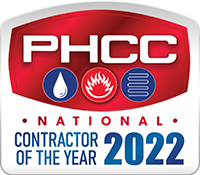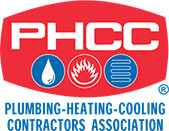
Whole-Home Repiping in Baltimore, MD
When you own a home, you can expect the occasional plumbing problem, but if you are constantly dealing with leaky pipes, burst pipes, or low water pressure, it may be time to consider whole-home repiping. The plumbing experts at United Air Temp have the skill and experience to remove and replace your old, damaged water supply piping, preventing future pipe failures and water damage.
Since 1931, our company has been a leader in home comfort, and we are proud to offer professional plumbing services to families throughout Baltimore, Annapolis, Columbia, Fredrick, and the surrounding areas. Our experienced team completes ongoing training, so we have the skills to deliver expert service and top-rated customer care.
Restore your plumbing with whole-home repiping from United Air Temp. Schedule service online or call (410) 413-3549 now.
What Is Repiping?
If your Maryland home is over a few decades old, it may have old or outdated plumbing materials, such as polybutylene piping, galvanized steel piping, cast-iron piping, or even lead piping. They deteriorate prematurely, leading to water damage in your home or even health issues. These pipes should be replaced to prevent plumbing trouble in the future.
With whole-home repiping from UAT, all of the water supply lines in your home are removed and replaced with safe, long-lasting materials like copper, CPVC, or PEX piping. We specialize in polybutylene repiping, but we can remove and replace any type of water supply piping.
Call (410) 413-3549 to schedule repiping services in the Baltimore area.
Signs You Need Repiping
It may not always be obvious that your home needs repiping. Some issues, like burst pipes, may be easy to spot, but reduced water pressure or small leaks in a crawl space may be harder to find. Here are some common signs that you may need whole-home repiping:
- Low water pressure: Galvanized steel or cast-iron piping can corrode over time, reducing the interior size of the pipe along with your water pressure.
- Frequent pipe leaks: If you seem to repair one leaky pipe, only to have another pipe spring a leak elsewhere in your home soon after, it is a sign that all the pipes may be on the verge of failure.
- Burst pipes: When the structural integrity of your pipes has been severely compromised due to corrosion, chlorine exposure, or other sources of degradation, they can burst more easily, especially in freezing temperatures.
- Discolored water: If your water is red, rusty, or otherwise discolored, it could point to corrosion in your piping.
- Poor water quality: If you have water quality issues, especially high lead content, it may be a sign that your home has old, damaged piping made of lead, cast iron, or galvanized steel.
Pipe Repair vs. Replacement
Repiping is not always necessary. If the pipe damage is limited to one area or most of the old piping has already been replaced, pipe repairs will likely be the most cost-effective option.
But if your plumbing has recurring problems, like the corrosion of cast-iron piping or the chlorine-related degradation of polybutylene piping, it’s best to replace it all to avoid costly damage to your home in the future.
For help determining whether you should repair or replace your water supply piping, call (410) 413-3549 today to request pipe services in Baltimore.
What To Expect During a Home Repiping
Repiping a home is a big job, and it can take several days to a week or more, depending on how large your home is and where the plumbing is located.
To make sure your home is ready for the process, move any furniture and appliances away from the walls of the kitchen and bathroom, and remove wall hangings like art or photos. Ensure there is easy access to the basement or crawl spaces where the plumbing is located.
The repiping process typically includes:
- Evaluating your plumbing: We’ll determine what type of pipe is present, its condition, and what fixtures each branch feeds.
- Obtaining permits: Before repiping can begin, we must obtain all necessary permits and schedule inspections.
- Gaining access: The plumber may have to remove sections of drywall to access plumbing in walls or ceilings, so there must be easy access to all areas of your home.
- Removing and replacing the piping: All the old piping will be removed and replaced with long-lasting modern materials like PEX, CPVC, or copper. Where the piping cannot be removed, such as sections that pass through slab foundations, it will be disconnected, and new lines will be installed.
Request whole-home repiping from United Air Temp. Call (410) 413-3549 now!
Schedule Whole-Home Repiping in the Baltimore Area
When you need a plumbing company you can count on for quality whole-home repiping in Baltimore or the surrounding communities, turn to our experts at United Air Temp. Our company has been delivering complete customer satisfaction for over 90 years, and we have the skill and experience to help with your most challenging plumbing problems.
We’re committed to our community, and we strive to provide the highest-quality customer service, creating long-lasting partnerships with families throughout the Baltimore area. We offer upfront pricing and financing options on approved credit to make this process as easy as possible.
Stop worrying about the condition of your plumbing and take action. Call (410) 413-3549 today to schedule whole-home repiping in Baltimore.
Frequently Asked Questions
Is it worth it to repipe a house?
Yes, by replacing your old, damaged, or defective piping, you can avoid costly pipe failures in the future, water damage, mold problems, and health issues from contaminated piping. Plus, repiping provides something you cannot put a price on — peace of mind.
What's wrong with polybutylene piping?
Polybutylene piping was common in new plumbing installations from the 1970s to the late 1990s, but problems were later discovered that severely reduced its expected service life.
The material was found to be especially vulnerable to damage from chlorine used to sterilize water in municipal water systems. When exposed to these substances, the pipes can become brittle and crack or burst in as little as 10 to 15 years.
Plus, the reactions can leach dangerous chemicals into the water supply.
How do you recognize polybutylene pipes?
Polybutylene pipes are flexible plastic pipes that are blue, gray, or black. The pipe is crimped over the fittings with metal bands, similar to PEX, and the piping may have “PB” or “QEST” printed along its length.

















